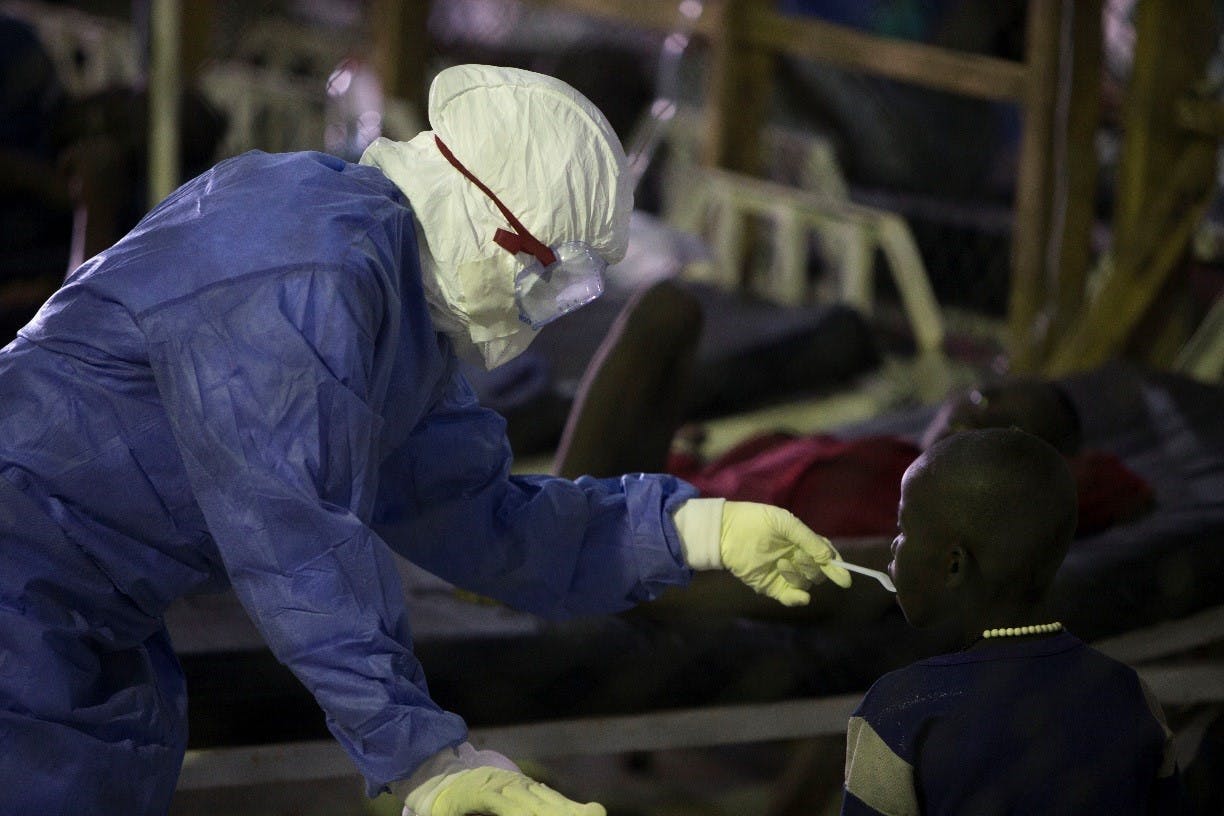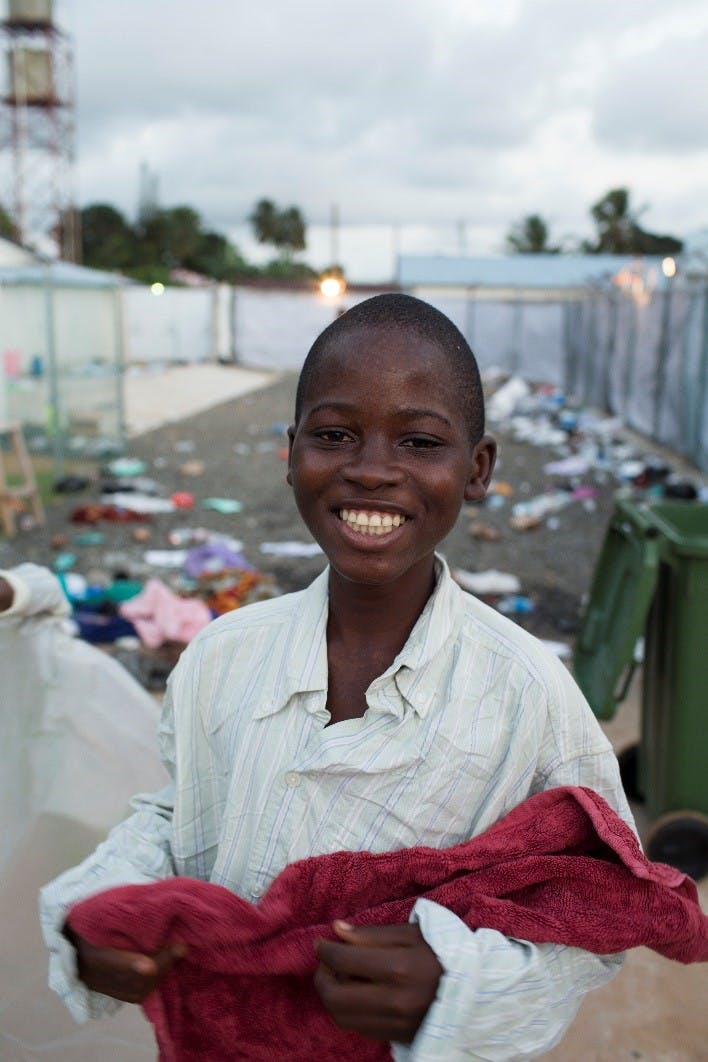The United Nations and its agencies, including the World Health Organization, are on the ground in West Africa, working with governments and non-governmental groups to stop the Ebola outbreak.
Along with partners, the UN is constructing Ebola treatment centers, providing medical expertise, airlifting aid including protective gear, delivering food, training health care workers, and much more.
The World Health Organization shared with us photographs capturing the response efforts in Sierra Leone and Liberia, and we have featured five of those images below.
How you can help:
To stop Ebola, the UN and partners need more resources. You can help by donating to the Ebola Response Fund to support UN efforts. Go to www.unfoundation.org/ebolafund or text EBOLA to 27722 to give $10. Terms: mGive.org/T
1. A health worker in Liberia wearing protective equipment feeds a patient being treated for Ebola virus disease.
Photo credit: World Health Organization/Christopher Black
After being refurbished by the Liberian Ministry of Health and Social Welfare with support from WHO and other partners, the Island Clinic opened its doors as an Ebola treatment centre on 21 September. Within 24 hours of opening, the clinic was filled beyond capacity. Ugandan doctors and nurses deployed by WHO are working around the clock, together with Liberians who have been specially trained in infection control and clinical care of Ebola patients.
2. Health workers wearing protective equipment, Island Clinic, Monrovia, Liberia.
Photo credit: World Health Organization/Christopher Black
After being refurbished by the Liberian Ministry of Health and Social Welfare with support from WHO and other partners, the Island Clinic opened its doors as an Ebola treatment centre on 21 September. Within 24 hours of opening, the clinic was filled beyond capacity. Ugandan doctors and nurses deployed by WHO are working around the clock, together with Liberians who have been specially trained in infection control and clinical care of Ebola patients.
3. Young patient is discharged from the Ebola treatment centre, Island Clinic, Monrovia, Liberia.
Photo credit: World Health Organization/Christopher Black
After being refurbished by the Liberian Ministry of Health and Social Welfare with support from WHO and other partners, the Island Clinic opened its doors as an Ebola treatment centre on 21 September. Within 24 hours of opening, the clinic was filled beyond capacity. Ugandan doctors and nurses deployed by WHO are working around the clock, together with Liberians who have been specially trained in infection control and clinical care of Ebola patients.
4. WHO staff member gives advice to team preparing to take a sample from a person who has died for testing for Ebola virus disease. Freetown, Sierra Leone.

Photo credit: World Health Organization/Christopher Black
5. Mbabila Awuni, who works as a contact tracer for WHO (LEFT), in discussion with nurse Fatmata Bangura (RIGHT) in Foredugu, Port Loko District in Sierra Leone.
 Photo credit: World Health Organization/Christopher Black
Photo credit: World Health Organization/Christopher Black
Contact tracing is the identification and follow-up of people who may have come into contact with an infected person.
All potential contacts of Ebola cases should be identified and closely observed for 21 days from the last day of exposure. Contacts that develop illness should be immediately isolated to prevent further transmission of infection.
*Charges will appear on your wireless bill, or be deducted from your prepaid balance. All purchases must be authorized by account holder. Must be 18 years of age or have parental permission to participate. Message and Data Rates May Apply. Text STOP to 27722 to STOP. Text HELP to 27722 for HELP. Full Terms: mGive.org/T Privacy Policy: mGive.org/P



 View All Blog Posts
View All Blog Posts

